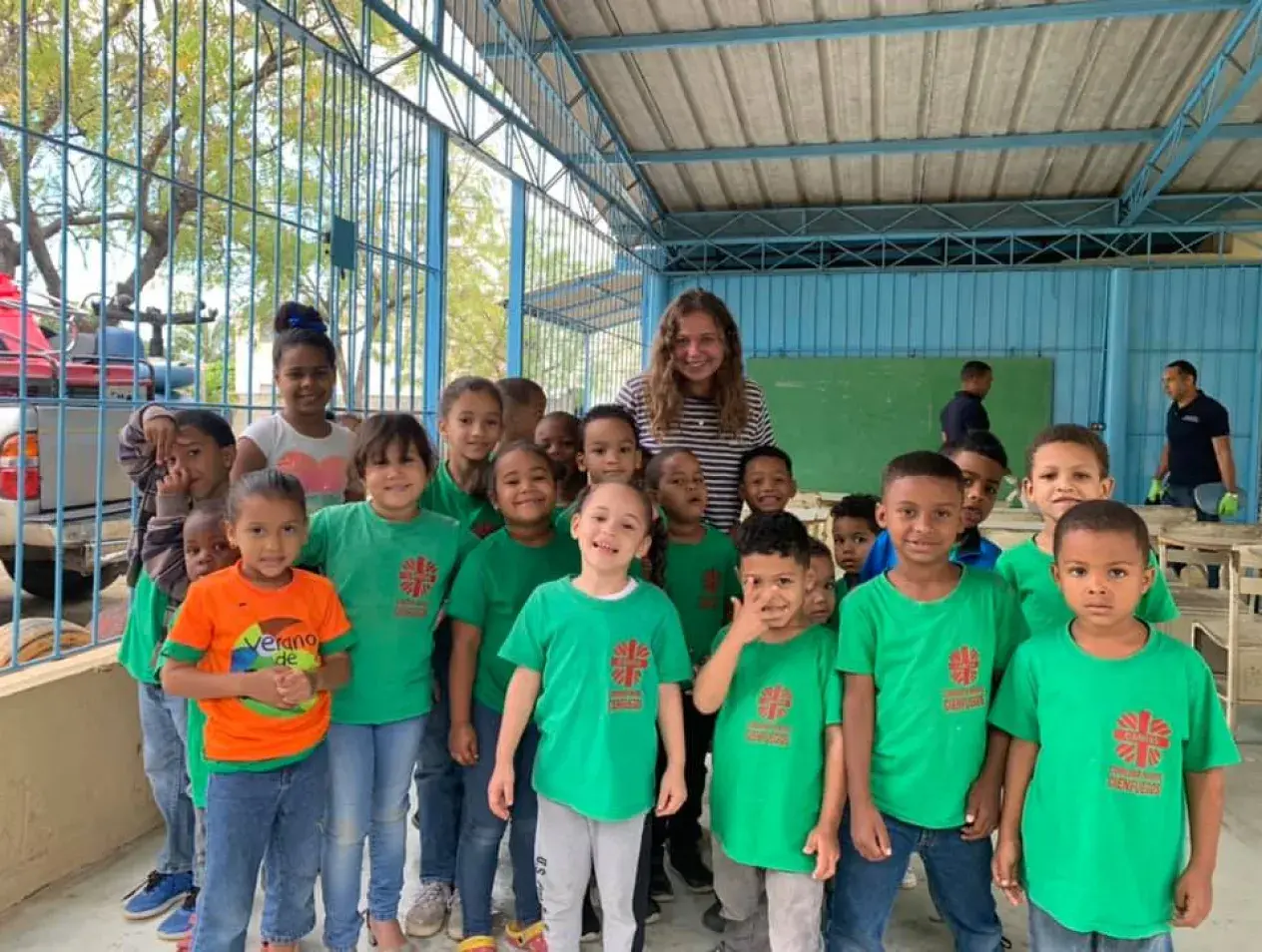
Camryn Halboth
Creighton University’s Global Scholars Program is a four-year educational and professional development program designed to immerse select students in a variety of cultures for a rich academic, social and service experience. Camryn Halboth is among the program’s first graduating class.
Global Scholars grad stresses importance of ‘solidarity’
As perhaps one might expect from someone about to graduate with a double major in justice and society and sociology, as well as a minor in sustainability, Camryn Halboth has thought long and hard about her experience with Creighton University’s Global Scholars Program.
The Global Scholars Program, founded four years ago by Creighton University President the Rev. Daniel S. Hendrickson, SJ, PhD, provides four global study and service experiences during four years of study. Two of those — Australia and the Dominican Republic — were common to all participants. Going forward, Sydney, Australia, has been replaced by Bologna, Italy.
“In Australia I learned a lot about independence,” Halboth says. “Being 18 years old in my first year of college in a country that I had never been to before, was overwhelming. I learned a lot about me and what I needed to feel fulfilled as a human, how to cook dinner, how to buy toilet paper, how to manage my time, how to go to school on my own.
Halboth, a Michigan native who will graduate in May as part of Creighton’s first Global Scholars cohort with a bachelor of arts in Justice and Society and a bachelor of science in Sociology, says her anticipated four trips were cut to two due to COVID-19 restrictions, but that her semester in the Dominican Republic introduced concerns relating to justice, the impact of service and the importance of being “in solidarity” with people living in developing nations.
“I think a lot of people are interested in service but not the justice component, and that's not really beneficial,” she says. “I think our activity is skewed toward what we think people need whereas oftentimes we need to get at the root cause. Sometimes that does not mean building houses or giving food to people, which can actually be more harmful than helpful.
“We have to go to places and ask them what they want instead of assuming that we know what they want and need. That means being next to people, living life with them. I learned, I think, how to love people and how to live in solidarity instead of trying to fix and solve things.”


